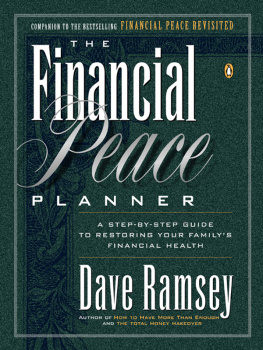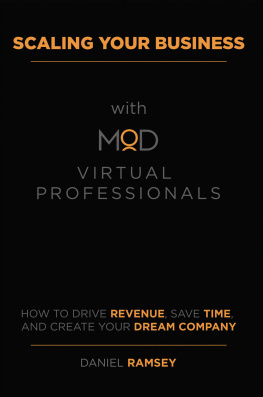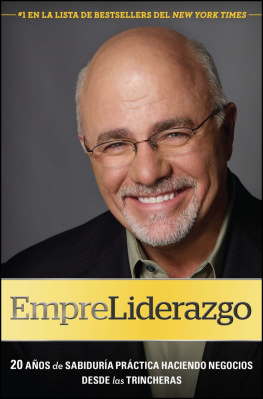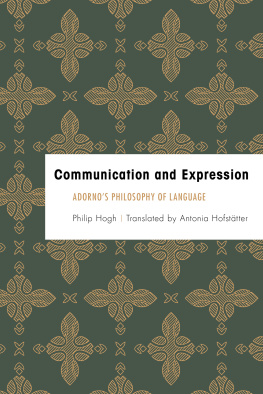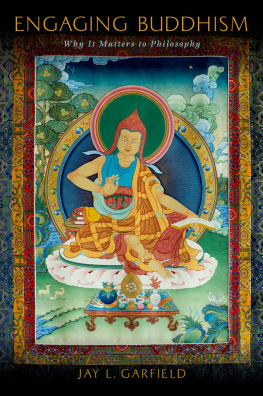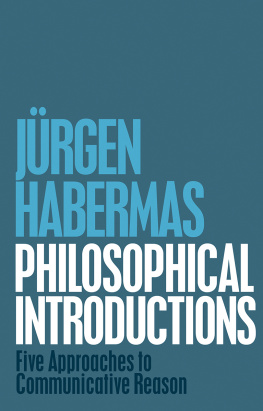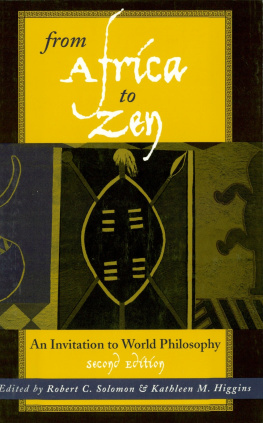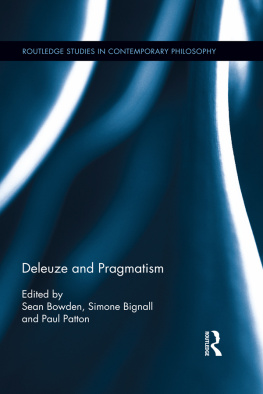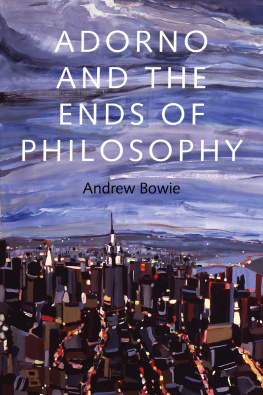
Experiences between
Philosophy and
Communication
SUNY series in the Philosophy of the Social Sciences Lenore Langsdorf, editor
Experiences between
Philosophy and
Communication
Engaging the Philosophical Contributions
of Calvin O. Schrag
Edited by
Ramsey Eric Ramsey
and
David James Miller
STATE UNIVERSITY OF NEW YORK PRESS
Published by
State University of New York Press, Albany
2003 State University of New York
All rights reserved
Printed in the United States of America
No part of this book may be used or reproduced
in any manner whatsoever without written permission.
No part of this book may be stored in a retrieval system or transmitted in any form or by any means including electronic, electrostatic, magnetic tape, mechanical, photocopying, recording, or otherwise without the prior permission in writing of the publisher.
For information, address State University of New York Press, 90 State Street, Suite 700, Albany, NY 12207
Production by Diane Ganeles
Marketing by Jennifer Giovani
Library of Congress Cataloging in Publication Data Experiences between philosophy and communication : engaging the philosophical contributions of Calvin O. Schrag / edited by Ramsey Eric Ramsey and David James Miller.
p. cm. (SUNY series in the philosophy of the social sciences) Includes bibliographical references and index.
ISBN 0-7914-5875-X (alk. paper) ISBN 0-7914-5876-8 (pbk. : alk. paper) 1. Schrag, Calvin O. 2. CommunicationPhilosophy. I. Ramsey, Ramsey Eric, 1960
II. Miller, David James, 1957 III. Series.
B945.S3264 E96 2003
191dc21
2002042643
10 9 8 7 6 5 4 3 2 1
Contents
Introduction: In-between Philosophy and
Communication Studies
vii
Ramsey Eric Ramsey
Part I. Conversation as Invitation to Dialogue
From the Loving Struggle to the Struggle to Love:
A Conversation with Calvin O. Schrag
Ramsey Eric Ramsey and David James Miller
Part II. Publics and Their Problems
Communicative Praxis and Collective Decision Making: From Phenomenology to the Politics of Experience to Dialogic Constitutive Practices
Stanley Deetz, Amy Grim, and Alexander Lyon
Limitations of the Public Sphere: The Repressive Voice of Modernity
Raymie McKerrow
Transversing Dualisms and Situating the Embodied Self in Organizational Theory and Practice
Majia Holmer Nadesan
Part III. On Giving and Suffering
The Gift of Acknowledgment
Michael J. Hyde
v
vi Contents
Awaiting the Year of the Donkey
Stephen Pluhck
On Hearing the Call: From the Pain of Affliction
toward Healing
David James Miller and Michael J. Millington
Part IV. Philosophizing the In-between
Feminism after Postmodernity: Some Places of
Narrative in Communicative Praxis
Dennis K. Mumby
Epistemology, Tropology, Hermeneutics, and the
Essence of Language
Lenore Langsdorf
Procreation in a Beautiful Medium: Eroticizing the Vectors of Communicative Praxis
Ramsey Eric Ramsey
Selected Publications by Calvin O. Schrag
Contributors
Index
Introduction
In-between Philosophy and
Communication Studies
RAMSEY ERIC RAMSEY
If not in Gorgias, then at least by Phaedrus, Plato understands that he would have to think in-between rhetoric and philosophy if he was going to be able to get at things. As Calvin O. Schrag argued in the article that announced his then-forthcoming book Communicative Praxis and theSpace of Subjectivity, today rhetoric and communication need to be resituated at the end of philosophy. With that and subsequent work, Schrag has helped make this resituating possible in unique and profound ways.
Those of us who have learned from Professor Schragwhether as participants in his seminars, readers of his published works, or bothand who teach in departments of communication studies and who work there to philosophize the consequences of this practice, find ourselves having incurred many debts to him. For those as yet unfamiliar with his work, so much remains to be gathered and put to work to assist our thinking about the consequences of communicative praxis across a variety of life-world contexts.
I, along with my co-editor David James Miller, have brought together nine essays by leading scholars whose work has engaged and benefited from Schrags many contributions and will act in various ways as extensions, explications, and provocations to those studying communicative phenomena. In lieu of a lengthy introduction, we have been given the gift of a full-length interview with Schrag conducted by the editors.
The only such interview ever granted, it covers the wide spectrum of issues with which Schrag has dealt in his many scholarly works. Although each contributor to this collection wrote without access to the interview vii
viii Ramsey
(with the exception of the editors), it is amazing to note the ways in which each produced essays that explore the issues raised in this conversation.
The work by the contributors shows how widely and deeply influential Schrags philosophy is and how much it gives to the future of dialogues concerning theory in the philosophical study of communication.
Recently Schrags philosophical positions were engaged by Roger Mourad, a philosopher of education, to argue for a postdisciplinary world. Along with my co-editor and all the contributors, I am grateful to be able to make public the following interview and collection of insightful essays of this, if not postdisciplinary, then at least interdisciplinary volume responding to Schrags philosophical positions from those of us who philosophize elsewhere.
Part I Conversation as Invitation
to Dialogue
This page intentionally left blank.
From the Loving Struggle
to the Struggle to Love
A Conversation with Calvin O. Schrag
RAMSEY ERIC RAMSEY AND
DAVID JAMES MILLER
INTRODUCTORY REMARKS
RER/DJM: Professor Schrag, we are immensely grateful for the opportunity to reflect here on the richness of the work that marks your distinguished career. We hope that, in some small way, we can offer something here that acknowledges the time, encouragement, and support you so selflessly and graciously give those who are working in philosophy and communication.
It is our intention to conduct this conversation in such a way that it will prove to be useful both to those who are familiar with your work and to those as yet unfamiliar with it. We hope to offer those already familiar with the work, not only further contextualization, but a new perspective on the work as well. We have always believed that the radical implications of your work, implications that have become obvious to us in our many conversations with you, have too often been overlooked, and we hope that in this conversation we can bring some of these implications to the fore. For those unfamiliar with your work, we hope to offer a consolidated, if not a comprehensive, introduction to your thought.
In discussing your work, it will become evident that we have a particular interest in your reflections on the phenomenon of communicative praxis. We are scholars trained in both the disciplines of philosophy and communication and have been dedicated from the first to an elaboration of the philosophy of communication. It is our hope that in the course of 3
Next page

